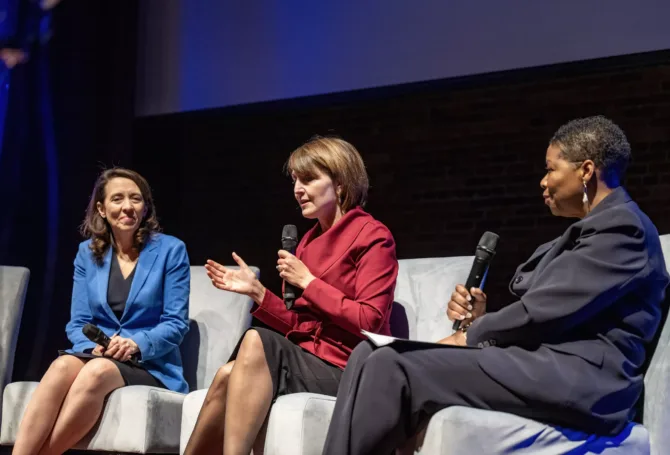
Signing of the phase one trade deal between the United States and China has been lauded by President Trump, but political opponents and even the president’s former economic adviser question whether the deal was worth the damage caused by Trump’s tariffs, which largely remain in place.
The New York Times published a story indicating Pacific Northwest inspiration for Trump’s trade war came from the experiences of companies such as Micron, which is based in Idaho. Trump and his trade team argue that a tough stance is the only way to force China to change its ways.
“China’s treatment of American companies like Micron fed Mr. Trump’s decision to unleash a punishing trade war with the world’s second-largest economy, a fight he said would halt Beijing’s use of unfair practices to undermine the United States,” the Times reported. “The initial trade deal announced last week should make operating in China easier for companies like Micron. The deal contains provisions meant to protect American technology and trade secrets and allow companies to challenge China on accusations of theft, including older cases like Micron’s that precede the agreement.”
The Times report contains the reservation shared by critics. “[The] two-year conflagration may wind up being more damaging to American technology companies.”
Appearing on Face the Nation over the weekend, former Trump economic adviser Gary Cohn said he doubted the trade war produced “any different outcome” than could have been achieved through negotiation. Cohn left his post in the Trump administration over a disagreement on trade tactics.
“I think [the trade war] has totally hurt the United States,” Cohn said. “Look, the U.S. economy is very strong, very solid. Employment growth is great. But we’re missing a big component. We’re missing the capital expenditures from companies in the United States.” Companies, he explained, are balking at building new plants or purchase expensive equipment because of tariffs on steel and aluminum.
The most striking criticism of the phase one deal is that it doesn’t include provisions dealing with cybertheft, a point confirmed by Cohn in his TV interview.

http://prod-upp-image-read.ft.com/d08f2b80-37b2-11ea-a6d3-9a26f8c3cba4
“China agreed to beef up its intellectual property protections in several ways to make it easier for US companies to seek recourse in both civil and criminal proceedings for the theft of trade secrets, without disclosing confidential business information,” according to Financial Times. “The deal also includes stricter measures related to patents, trademarks and geographical indications to prevent piracy and counterfeiting. Although these measures apply to digital infringements, critics say this chapter addresses many ‘20th century’ IP issues with China, but [it] fails to tackle the current era’s most pressing problem, as China did not make any sweeping commitments to combat cybertheft.”
The report in Financial Times said, “Some of the commitments contained in the 86-page document, which has eight chapters and a preamble, echo previous pledges made by China at the WTO or in G20 summits, and repackage steps Beijing had already been taking towards more open markets. Cybertheft by China as well as its use of industrial subsidies and its barriers against some US technology investments are not addressed.”
While the deal may help technology companies pursue legal cases against the Chinese, Trump’s bellicose “trade approach has accelerated a technology arms race between the two countries, putting American companies like Micron at risk as the two nations try to decouple their economies,” the Times reports. “In an effort to reduce its reliance on American components, China has expedited efforts to produce its own semiconductors, driverless cars, artificial intelligence and other technologies.”
“Let’s be clear, the trade war has been very bad for the semiconductor industry in several ways,” Robert D. Atkinson, president of the Information Technology and Innovation Foundation, a think tank funded by the tech industry, told the Times. “It’s like China woke up and said, ‘We’ve relied too much on the United States.’”
US officials believe American-based semiconductor technology represents a strategic advantage, which could begin to slip away if the Chinese go their own way in developing the components for next-generation supercomputers, artificial intelligence, space vehicles and military weapons.
Another omission in the phase one deal are provisions to end or curtail China’s use of subsidies to give an edge to its state-owned companies or state-favored industry sectors. For example, China reportedly is pumping huge sums into manufacturing memory chips, which is what Micron makes. That has led critics of Trump’s trade policy to say companies like Micron may win a battle in a courtroom, but lose the war on the battlefield of competition.



